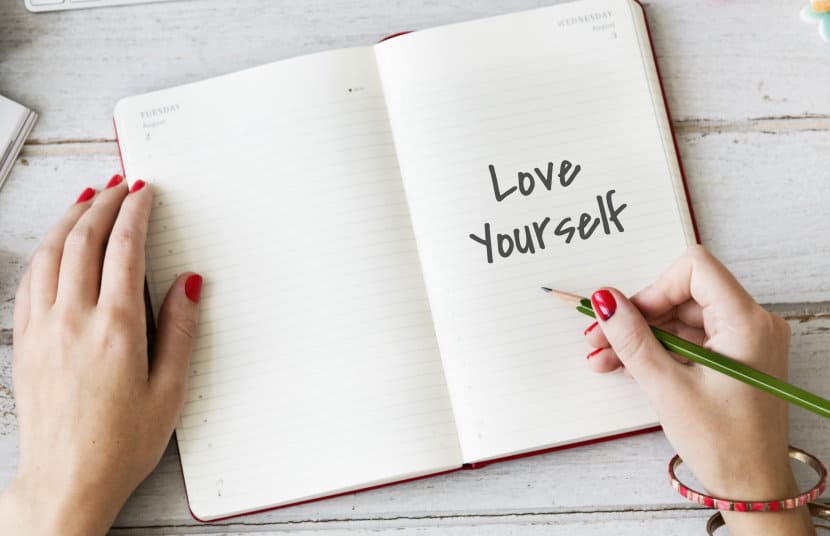What to Do When Your Family Sides With The Narcissist
*We may earn a commission for purchases made using our links. Please see our disclosure to learn more.
Narcissists can be really charming when they want to be, as you probably already know. They can convince people who aren’t close to them that they are wonderful people. They can also sometimes convince your family and friends that they are great and you are the one with the problems. It’s a situation where the narcissist is a ‘street angel’ but a ‘home devil.’ What can you do when this happens?
The most important relationship you will ever have in your life is the one you have with yourself. While it may be validating to have support from your family and friends, true support can only come from inside. When others support the narcissist, you must look inside and support yourself.
If your family and friends side with your narcissistic abuser, it can feel like the ultimate betrayal. It can also make you doubt your own perceptions and self-worth. But you must look inside to support and heal yourself, and that is where you need to put your focus. Read on to discover what to do when the narcissist has everyone on their side.
What Should You Do When Your Family is on the Narcissist’s Side?
My narcissistic mother always projected her perfect mother image whenever anyone from outside our immediate family was around. After I realized something was wrong with her, this used to drive me crazy.

I knew they would never believe me if I tried to tell them what she was really like. If you have a narcissist in your life, you have probably experienced something similar, so what should you do?
The first thing you have to realize is that your perceptions are valid. That can be difficult when everyone around you seems to disagree, but you must restore your own trust in yourself. It can help to create a journal of interactions and events you experience with the narcissist you know.
Document everything that happens, your perceptions, and the narcissist’s actions and reactions. When you see the abuse documented in black and white, it can help you trust what you believe you’re experiencing even when others don’t.
The next step is to heal some of the wounds you have experienced in your life. We all have them, and healing them is the key to unlocking a completely different and healthier life. This may involve seeking help from a professional therapist or maybe talking to a good friend who hasn’t sided with the narcissist.
Telling someone you trust about what is going on can help you realize that you are not crazy. Ultimately, however, you will have to look inside to develop that loving relationship with yourself. You have to trust yourself even when other people around you aren’t on your side. You must be there for yourself.
To support yourself, you also need to spend quality time caring for yourself. Take regular walks in nature, exercise, eat healthy foods, and treat yourself to things you love.
How Can They Believe the Narcissist?
It might seem crazy that the narcissist can convince your family to believe them instead of you, but it’s important to remember that a narcissist can be very charming. Since the narcissist was a child, they have learned how to charm people to get them to do what they want, which is to supply them with a steady diet of adoration.

They often learned from their own abusers how to manipulate people, and they’ve been doing it for a long time. They know how to make it seem like they are innocent and you are the unreasonable one. Sometimes, they can even convince you they are right, and that what you thought happened, didn’t.
It’s a mistake to think that someone who has narcissistic personality disorder (NPD) is not intelligent. They have learned just how to use your own fears and behavior against you to manipulate and control you. They might have a poorly developed sense of self, but they have developed very effective coping strategies in its place. They know exactly what to look for in other people so that they can seem like the perfect person.
As Marlene Matlock, who was married to a covert narcissist for 47 years, writes, “Now that I understand a NPD, I can see clearly see that to my family as well as the public he appeared to be this perfect person.” You probably thought the same thing about the narcissist at the beginning of your relationship.
You have to separate what you know about them as a result of your private relationship from what other people see when they interact with them. They don’t see the lying and gaslighting and triangulation. They don’t see their narcissistic rage. The narcissist reserves those characteristics only for those closest to them.
How Can You Heal Yourself?
You can’t expect the people around you to heal you. You need to learn how to heal yourself and give yourself the support others might not give you. This means learning to value and trust your own insights.

Keeping that journal mentioned earlier is helpful, and you should make a note of any interactions you have where you feel you’re being manipulated. Think of your journal as a close friend with whom you’re sharing your darkest secrets. But it will take more than journaling to heal your narcissistic abuse.
You need to protect and prioritize yourself and your own loving care. This means making time for getting away from the narcissist and anyone who supports them. Spend time with friends who do believe and support you or get out in nature for some relaxation.
Meditation is also a good habit to build. This can help you to look inside and heal old and new wounds. You can also process your thoughts and feelings using meditative practice. The goal of meditation isn’t to silence your mind, it’s to allow you to truly process your feelings.
Through meditation and self-care, you can begin the process of healing your inner child. You want that frightened, little child inside of you to know that no matter what, they always have a champion in you. You will take care of yourself.
This can help you establish confidence in your perceptions of reality. When you know yourself and are there for yourself, it doesn’t matter who else believes you. You’ve got your own back.
What Should You Say to Your Family?
When you’ve taken care of yourself and know the truth, you don’t need your family’s support. While it can be heartbreaking that they have chosen to support the narcissist, you know that you trust and support yourself.

This gives you a foundation for healing, but it also gives you the courage to respond to your family. You’re probably not going to convince your family that you are right, so it’s not a good use of energy to try to do that.
Instead, it’s better to simply state that you have a different opinion or perspective on what has happened. You can let them know that you respect their opinion, but that’s not how you see the situation. Then don’t talk about it anymore.
Some people who find themselves in this situation are the scapegoat of their own family and the narcissist is another family member. In this case, once you feel strong enough and are old enough to do so, you can opt to stop having contact with your family.
Many families who have a narcissist among them are dysfunctional and abuse is a common theme. If you are the scapegoat of the family, you may want to consider cutting off contact with the entire family. You have to do what is best for you, but that’s one option.
Final Thoughts
It can feel like a cold, lonely world when your entire family or close friends support your narcissistic abuser instead of you. But your experiences and perceptions are valid, and you have to support yourself. The relationship you have with yourself is the most important relationship you will ever have. Make that your priority, and you will always have a champion on your side.
Part of healing yourself includes healing the wounds that have created your emotional triggers. Narcissists will use your emotional triggers against you to manipulate and control you, so if you can heal those, you can prevent them from using them against you. If you click on this link, I’ll send a free copy of my 5 Step Roadmap to Heal Emotional Triggers directly to your inbox. This handy guide will help you recognize and heal those emotional wounds so no one can use them against you.
--
If you want more tips for dealing with narcissists, setting boundaries, and managing emotional triggers, make sure you subscribe to my youtube channel




